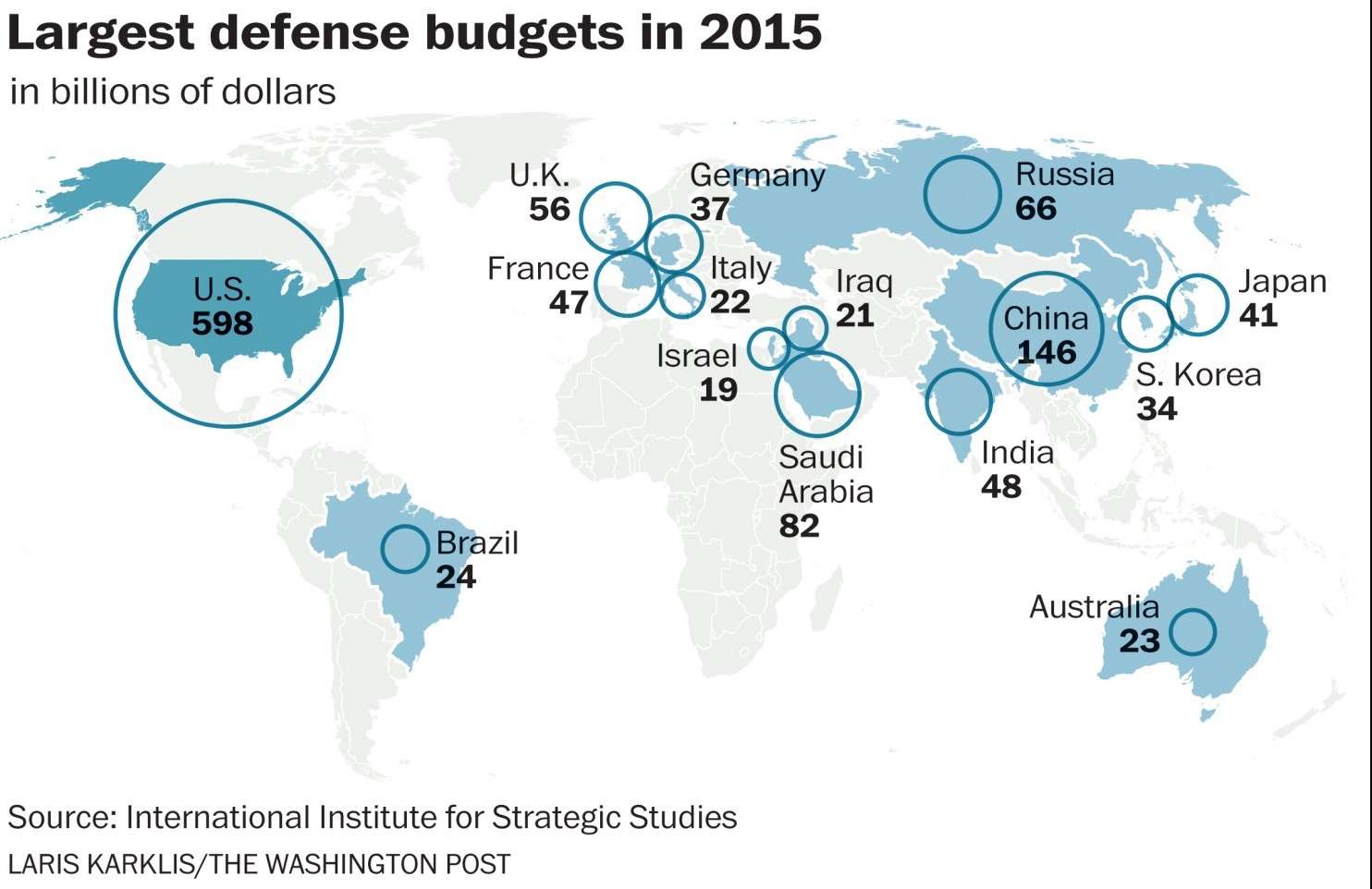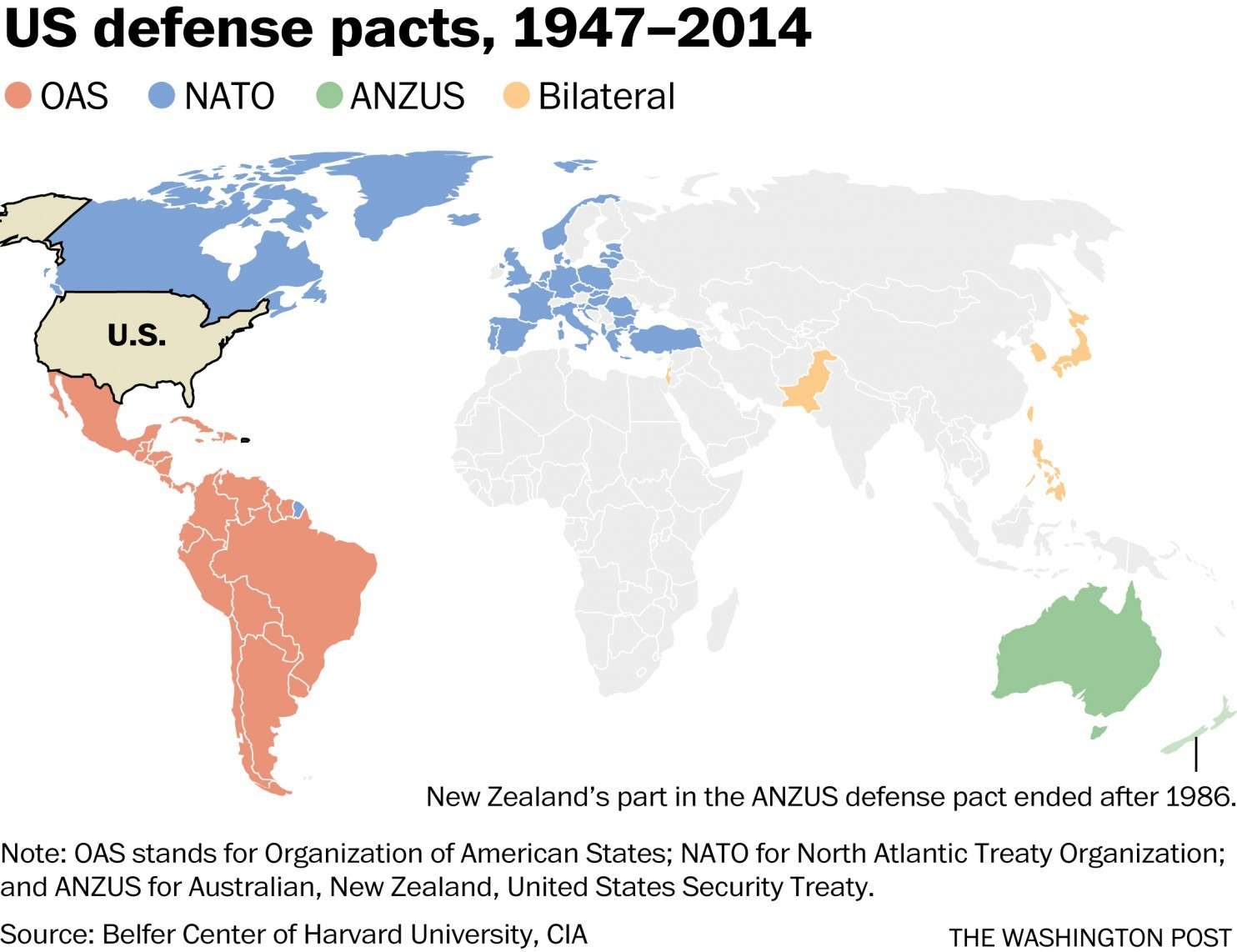Would Hillary Clinton, Ted Cruz, Donald Trump, or Bernie Sanders Stop America From Being World Police?
U.S. military spending dwarfs that of every other country. And we're pledged to defend 25% of humanity.

As New Hampshire voters cast their ballots in the nation's first 2016 presidential primary, here's a question worth asking of the candidates from either party: Which ones, if any, would definitely reduce military spending? The short answer: maybe Bernie Sanders but probably not even him.
Among the Republicans, there is only talk of increasing spending on defense. Indeed, Tea Party faves Ted Cruz and Marco Rubio even pushed a spending measure that would increase the Pentagon's budget without offsetting spending anywhere else. When it comes to rockets' red glare, they're all in, as is the rest of the GOP field, with the exception of Donald Trump (who recently announced that he would keep hold spending constant but increase efficiency and reduce waste).

Hillary Cinton is a well-known hawk who is very much committed to keeping America "strong," by which she (and all pols) mean lining the pockets of the military-industrial complex. Even Bernie Sanders, the least hawkish of the remaining candidates and a vocal critic of 21st-century American wars, hedges his commitment to cutting defense spending this way: "Bernie firmly rejects any increase to defense spending at the cost of cuts to domestic social spending" [emphasis added].
Regardless of the massive amounts of dollars already being spent by the United States, expect the drumbeat for ever-larger defense expenditures to pick up going forward.
Despite the end of active engagements in Iraq and Afghanistan, the IISS Military Balance, a report that looks at global defense-related trends, states,
Contrasted with rising powers, defense budgets in Europe clearly seemed to be stagnating if not dropping. Britain saw its defense budget drop from $62 billion to $56.2 billion, for example, despite still relevant threats like the Islamic State in Syria and Iraq. Just four out of 26 European partners of NATO now meet the agreed spending aim of 2 percent of GDP, leaving a gap of almost $100 billion to reach the target.
That sound that you're hearing is the sound of cash registers ringing in defense contractors' offices all throughout the Beltway and beyond. The pitch for America to step up now to save the planet practically writes itself.
HT: Chris Preble's Twitter feed.
On top of the sheer amount of money being spent, the United States is committed via treaties and other security agreements to come to the defense of a huge chunk of the globe's population. From The Washington Post:
69 countries have some form of defense pact with the United States, and…they make up around 75 percent of the world's economic output…. The combined population of these countries and the United States itself is in excess of 2 billion.
If foreign policy motivates you in your voting, it's worth figuring out which if any candidate expresses your views on the matter.
Last month, Reason TV talked with David Vine, an American University anthropologist whose new book, Base Nation, looks at the costs and consequences of the U.S. military maintaining 800 bases around the globe outside the United States. The cost just for those operations comes in around $150 billion per year which is, as Vine notes, "huge." More than that, though, he argues that having so many personnel in so many places actually makes us less safe by stretching resources and increasing the odds of small events blowing up into international incidents. Take a look now:


Show Comments (42)